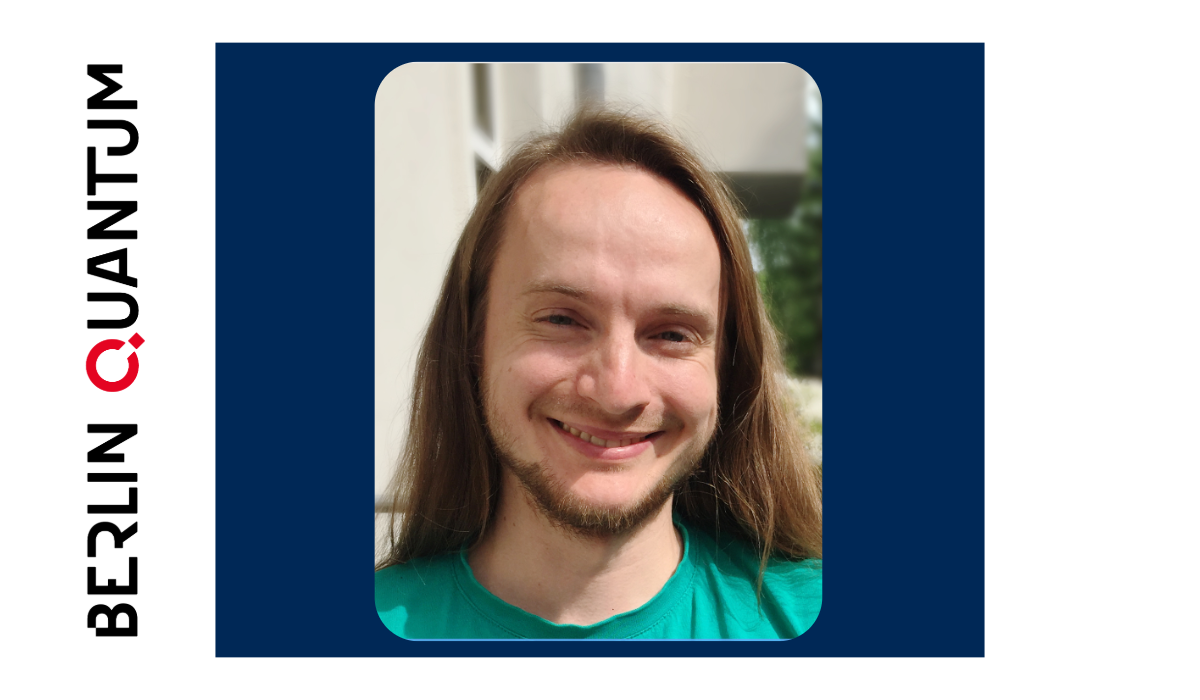In this interview, Julian Kristopher Nauth, a Ph.D. researcher at Freie Universität Berlin, shares insights into his work on the generation and application of GKP states. He discusses the collaborative spirit of Berlin’s quantum research community, the role of BERLIN QUANTUM in supporting interdisciplinary projects, and the exciting potential of photonics in quantum error correction and computation.
What inspired you to pursue a career in quantum physics?
During my physics degree, I already noticed that quantum physics is deemed essential in research nowadays. In particular, first developments of second-generation quantum technologies promised a prosperous future. On the other hand, quantum physics features an intriguing interplay between rigorous mathematical models and counter-intuitive, yet useful, phenomena. This motivated me to embark upon this path.
Why did you choose to conduct your research in Berlin?
After the Master’s degree, I was looking for highly successful research groups with a focus on quantum computing and photonics. The research group of Prof. Dr. Jens Eisert seemed perfect to me. Due to its large size and vivid discussion culture, the group offers great opportunities for “next-door” collaborations.
What advantages does Berlin offer for quantum physics research compared to other cities or countries?
Owing to two further universities being part of Berlin, collaborations with other research groups (experimental physics, in my case) can easily be established. Moreover, Berlin offers many opportunities to meet researchers from the entire world, as the city enjoys scientific attraction like international conferences.
Can you tell us about a current project or experiment you are working on?
One of the main projects of my Ph.D. deals with the generation of exotic quantum states, particularly Schrödinger-cat and Gottesman-Kitaev-Preskill (GKP) states, using photons. To classify the resources of photonic platforms and exhaust their limits, I apply the stellar rank formalism to classify the non-classicality of experimental output states and assess the approximation to a desired target state.
How does BERLIN QUANTUM and the Berlin research landscape support your work, and which resources are particularly helpful?
BERLIN QUANTUM benefits my daily research due to great flexibility and the focus on self-responsibility. Moreover, the research landscape in Berlin provides many occasions to meet and work with other researchers, also among the BERLIN QUANTUM fellows. One example is the project described above, where I am closely working with Dr. Roger A. Kögler, a postdoc in the research group of Prof. Dr. Oliver Benson. Roger is also funded by BERLIN QUANTUM, which supports this collaboration.
What role does collaboration with other scientists and institutions in Berlin play in your research?
Collaborations play an important role in my research. Many projects I am currently working on are in collaboration with other researchers, be they part of the AG Eisert or of other research groups. Regarding the project described above, the research group of Prof. Dr. Oliver Benson realizes a corresponding experimental setup.
How does living in Berlin influence your personal and professional development?
As mentioned previously, there are many occasions to discuss with other researchers. Frequent contact with people of different cultural and scientific backgrounds broadens my horizon in various respects. In particular, fruitful discussions to elaborate new approaches significantly enrich my research.
In your opinion, what are the most exciting developments or trends in quantum physics that we can expect in the coming years?
In the near future, new techniques in quantum error correction will pave the way towards approaching the fault-tolerant regime. Photonics will play an important role due to the ease of scaling to large-scale quantum computation, in contrast to other platforms. With regard to photonics, one can mainly expect improvements to overcome or circumvent loss, being the dominant error in this platform.
Do you have a special experience or anecdote from your time in Berlin that you would like to share with us?
I grew up in a village and later lived in a small city. Thus, I am again and again surprised about the distances in Berlin—how long one can travel without leaving the city.
What advice would you give to young scientists who aspire to a career in quantum physics and might consider coming to Berlin?
Berlin features a vivid and fruitful discussion culture. Take part in it, try to meet and connect with other researchers, show interest in their projects, and ask a lot of questions. Quantum physics will certainly gain in importance, and Berlin is one of the most promising places to be part of it.
More information.

